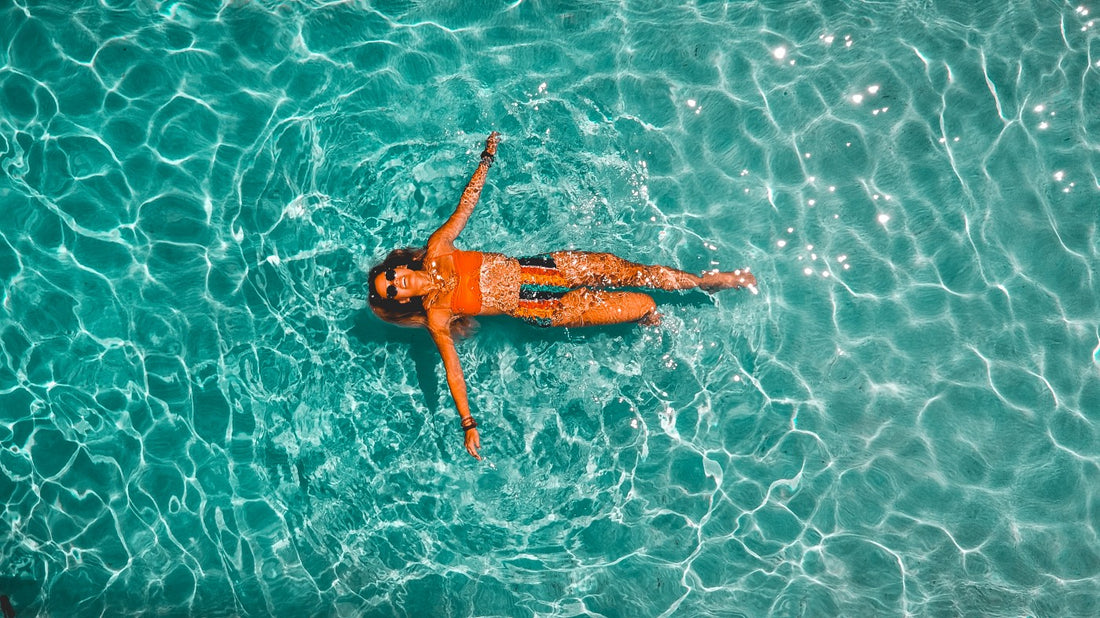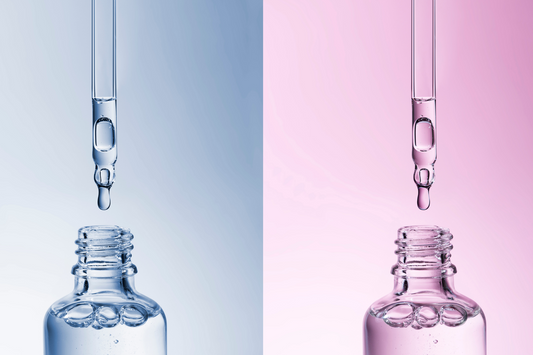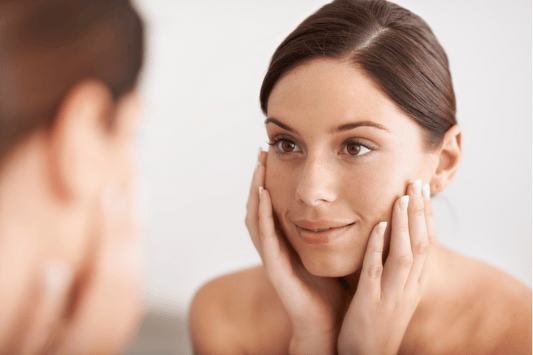On a vacation to the tropics, you may notice that after your daily dip in the hotel pool, your hair feels incredibly dry and may even be tinted green.
The biggest culprit here? Chlorine.
First of all, what is chlorine?
Chlorine is a naturally occurring chemical element. It kills bacteria and viruses, which is why it is commonly added to pools. The concentrations used in pools are generally safe for our bodies, but can cause damage to our hair.
The main issue here is that chlorine breaks down sebum. On each of our hair follicles, sebaceous glands release sebum that keeps our hair and scalp healthy and well-protected. Ironically, water leads to the “dryness” of hair.
Without the protection of sebum, water gets trapped under the hair cuticle (the scaly outer layer of each hair strand) and causes damage, making your hair feel rough and dry to the touch. Over time, your hair may begin to frizz and break.
But why does hair turn green?
Lighter hair often turns green in pools and there’s a common myth that the chlorine is what’s turning it green.
That’s not actually true — the green color is actually due to the amounts for copper in the water, which comes from the pipes, well water, or the copper-based algaecides that may be in the pool.
When chlorine bonds to the copper in the water, it causes it to rust (or oxidize). Those particles stick to the protein in your hair and can give your hair a greenish hue. This green tone is more noticeable the lighter the hair — especially with bleached hair that is more porous than untreated hair.
But not to worry! This is only temporary and usually washes out pretty easily with a clarifying shampoo.

So do I need to avoid swimming in my hotel’s pool?
Absolutely not! There are plenty of ways to minimize the damage that chlorine can do without sacrificing a pool day with your friends and family:
1. Wet your hair before you get in the pool.
If your hair is already wet, the chlorine has a harder time breaking down the sebum on your scalp. Also, the green chlorine-copper substance can’t bind as tightly.
2. Pre-condition your hair.
This has a similar effect to wetting your hair, but offers even more protection to your cuticle, keeping it moisturized and isolated from the pool water. Use your favorite conditioner or hair oil.
3. Rinse your hair immediately.
If you leave the pool and lie back on a deck chair, the chlorine will continue to damage your hair as if you were still in the pool. Next time, walk to the nearest pool-side showerhead and rinse off.
4. Dry your hair well.
After shampooing and conditioning well, dry your hair completely. Contrary to popular belief, drying your hair won’t damage it unless your heat setting is way too high. Drying your hair will push the water out from under your hair cuticles to maintain your hair’s silky texture.
5. Wear a swim cap.
Keeping the pool water away from your hair entirely is the best way to protect from chlorine damage. We know this isn’t the most popular look, but there are actually some pretty cute swim caps out there!
Just make sure to get one that is fully sealed and won’t tug at your hair too much. As an alternative, you could put your hair up and keep your head out of the water as much as possible.
Carry these tips with you and keep your hair protected from chlorine during your summer by the pool!





